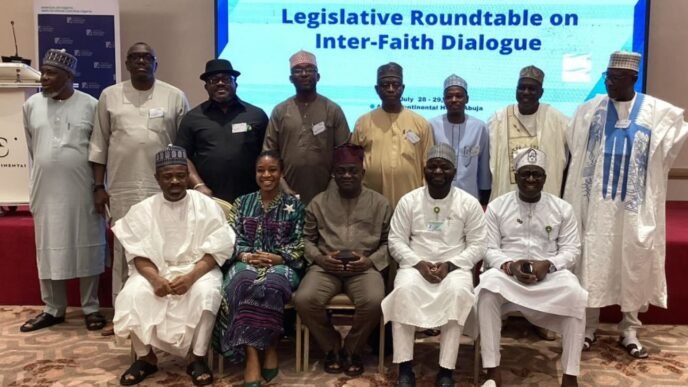The “Federal Capital Territory Emergency Management Agency (Establishment) Bill, 2025” (HB.2408) has been officially introduced in the Nigerian House of Representatives, marking the early stages of its legislative process. The bill was presented by Hon. Joshua Chinedu Obika, who represents the Abuja Municipal/Bwari Federal Constituency.
Status of the Bill
As of now, the bill has completed its first reading, a procedural step in which the title was read aloud to members of the House. This initial introduction does not involve any debate or voting, but it sets the stage for further consideration.
Sponsorship and Legislative Focus
Hon. Joshua Chinedu Obika has demonstrated a commitment to community development, education, and social empowerment within his constituency, and the introduction of this bill aligns with his efforts to address key needs in the Federal Capital Territory (FCT).
Inferred Purpose of the Bill
While the full text of the bill has not yet been made public, its title suggests several key objectives:
- Establishment of an Agency: The bill aims to create the Federal Capital Territory Emergency Management Agency, dedicated to managing emergencies specific to the region.
- Emergency Management Mandate: The agency is envisioned to focus on various aspects of emergency management, including:
- Disaster Risk Reduction: Implementing measures to prevent and mitigate the impact of natural and man-made disasters.
- Preparedness: Planning and organizing effective responses to emergencies.
- Response: Coordinating search and rescue operations, providing relief, and managing crises.
- Rehabilitation: Overseeing recovery efforts after disasters occur.
- Tailored focus for the FCT: While a national body, the National Emergency Management Agency (NEMA), exists, the establishment of a dedicated agency for the FCT aims to ensure a localized and effective response to emergencies, considering the unique administrative and governance structures of the region.
Next Steps in the Legislative Process
To advance, the bill must proceed through several additional stages:
- Second Reading: This stage involves a debate where the bill’s general principles will be explained by its sponsor, and Members of the House will have the opportunity to voice their opinions. A vote will determine whether the bill continues to the next phase.
- Committee Stage: If it passes the second reading, the bill will be referred to a committee for a detailed review. This stage may include public hearings to gather input from stakeholders.
- Committee Report and Third Reading: The committee will present its findings and any proposed amendments back to the House. The bill will then be debated one last time before a final vote occurs.
- Senate Passage: Should the House pass the bill, it will be sent to the Senate for a similar legislative process.
- Presidential Assent: Upon passing both legislative chambers, the bill will be forwarded to the President for approval, at which point it would become law.
The establishment of the Federal Capital Territory Emergency Management Agency is anticipated to enhance the region’s ability to respond effectively to emergencies, contributing to a safer and more resilient community in the FCT.











